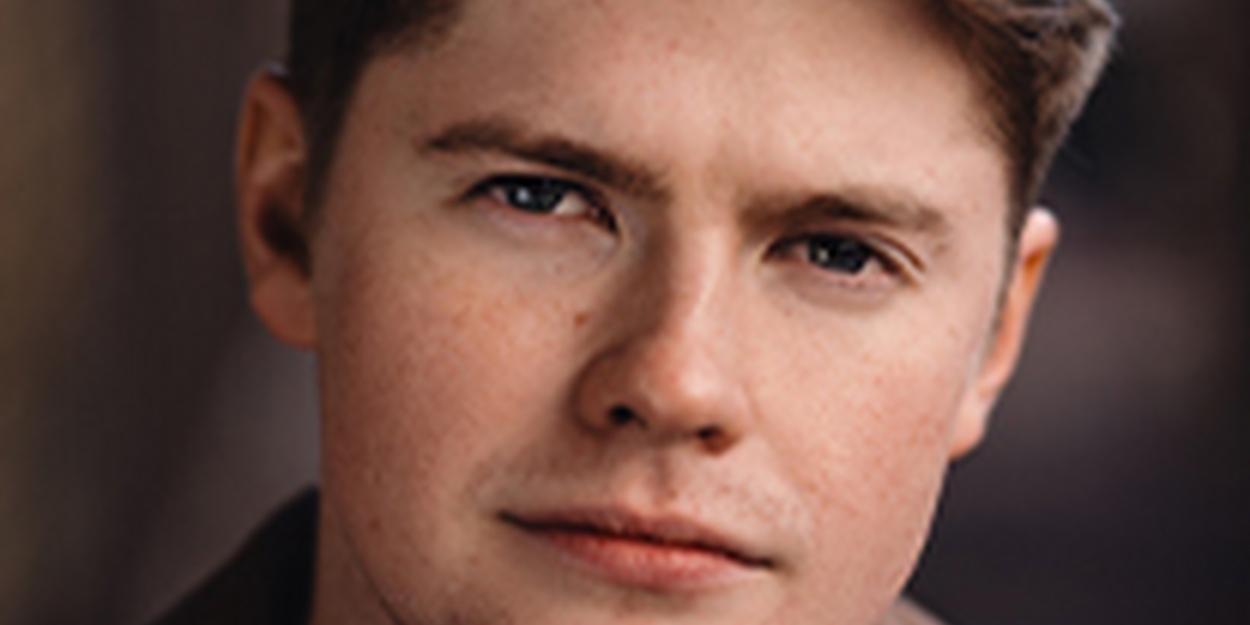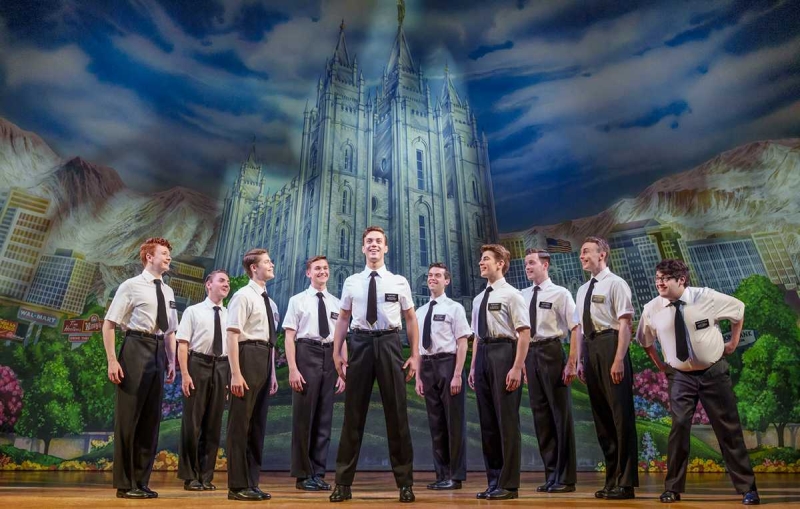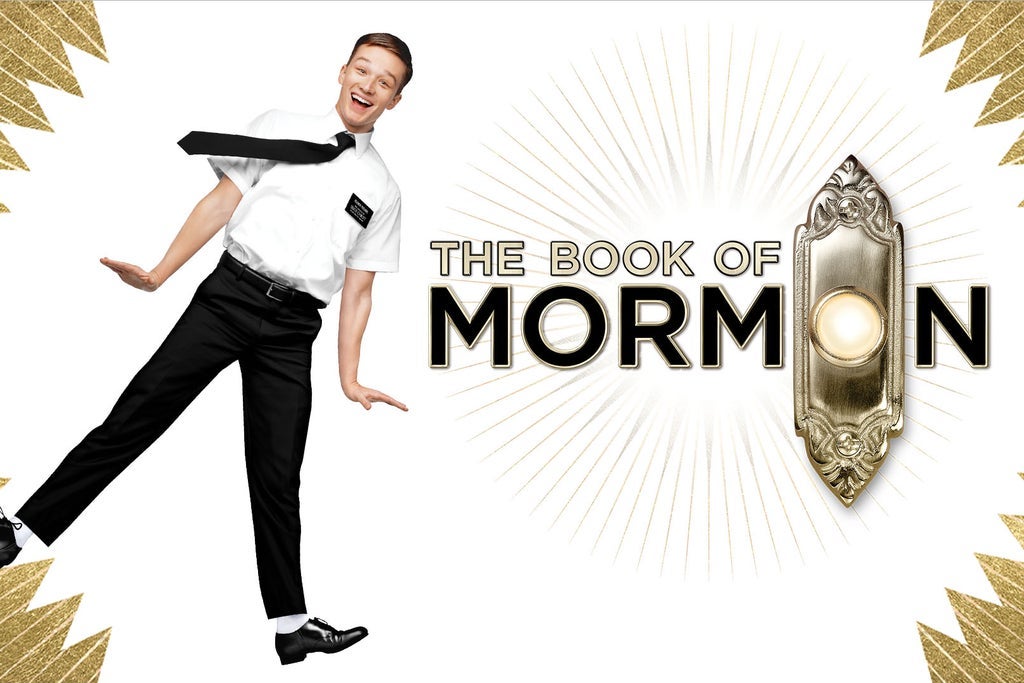Interview: I Count My Lucky Stars Every Day': Actor ZACHARY MILLER on Life in the Ensemble of THE BOOK OF MORMON
Zachary Miller gives BWW the inside track on life in the ensemble of one of the most successful shows of the 21st century

Zachary Miller landed a big show for his West End debut - The Book of Mormon. Six months on, Gary Naylor caught up with him between shows to hear about life in the ensemble, an unsung (but not unsinging!) and vital component of the magic of musical theatre.
Many of our readers will be aware of or seen backstage musicals that feature them - Follies, Company - but what is “the ensemble’?
The ensemble is one of the backbones of this show, of any show. They’re not the lead characters, but they’re an integral part. They’re not on stage all the time, singing the big songs, doing most of the scenes, but they’re supporting the show. Sometimes they’re in the background, sometimes they’re featured.
So they’re more than NPCs in games?
100%! They’re not there to just be ignored. They’re all so individual as well. Although the ensemble come together to help create the show, everyone they play has their own story.
So that’s different to the chorus in an opera, which is more of a homogeneous entity? The ensemble in a musical play minor roles, prompt the action to move on, add to the vocals. What’s the attraction to an actor of taking this job?
There’s not the pressure of playing a lead - it’s a bit more fun. Not saying that being a lead can’t be fun - obviously that’s amazing - but the ensemble works so closely together that you get a good sense of family. You get the chance to play around each night - if something doesn’t quite work one night, you can play it another way the next.
We’re not in the spotlight all the time. I love the freedom that comes with that - I’d say it’s an important thing.
There’s a perspective thing here too. We all know the story of the chorus girl unexpectedly thrust into stardom, but, for us in the stalls, you’re gods up there, whether you’re the lead or coming in to play a minor character! The frisson of excitement must be very strong?
100%. I’m six months in and still I love every day. Every show is different. Things might happen, mishaps, but it keeps it exciting.
[At the show I saw, sound problems delayed the show and/or heightened anticipation. That’s live theatre!]
Some people might think “You’re doing a show eight times a week in the ensemble - doesn’t it get boring?” But I don’t say so. It makes it all worth it at the end when everyone’s standing up cheering and clapping - it means our hard work has paid off.

I’ve detected a bit of an Australian accent - how did you get here?
It’s a funny one really.
I’ve loved theatre from a young age. I watched all the shows over in Australia.
Isn’t it just Priscilla Queen of the Desert and Mamma Mia? But seriously, were you in sophisticated Melbourne?
No, I was in Brisbane, up north on the sunny coast.
Bris Vegas!
The city - I love it. You can’t go wrong. But just the one theatre.
My first show was Mary Poppins and I thought, “This is kinda cool - maybe I should try it.” Then I saw Wicked and Jersey Boys. We get quite good shows in Brisbane.
I can see how got the bug from that, but it’s still a long way, literally and metaphorically from there to the Prince of Wales Theatre in the West End.
My teacher - I went to Musical Theatre classes - was from the UK and had trained over here. They told me about all the opportunities they’d had and I thought I’d just try it - no harm in that.
I graduated high school and came over at 18 and auditioned for places and got an offer from SLP College and never looked back. It’s a small school with about 100 kids in Garforth just outside Leeds. I was there for three years. Our summer show was in York Grand Opera House.
You then hit that hinge point when it gets real and you’ve got to get a gig.
It’s tough, especially the first few months. You’re thrown out into the world and told to “Do it!” It is hard. I was auditioning in London and I was getting closer to the final rounds.
I got my first professional gig in the Frankie Valli tribute show Walk Like A Man, random nights. I was singing high! It was a great gig, I loved it, met some amazing friends.
Is the audition process the same as we’re led to believe by the likes of Seth Rudetsky and the traditional backstage show?
Not really. There are some auditions that can be quite formal and like a conveyor belt. It can be quite scary - all these people looking at you makes you feel quite naked.
Is that a rite of passage for an actor?
I’d say so. If you can’t be in a room with ten people behind a table looking at you while you sing all on your own, how are you going to do it in front of one thousand? It feels more intimate in the audition room and that’s what makes it more scary. But you use those nerves and that adrenaline to get you through. You come and you’re on such a high - you feel great.
How do you get from ‘a show’ to one of the biggest shows in the world, running in the West End for 13 years?
A lot of the time, I feel like I have Impostor Syndrome, because I’m up on this stage thinking, “Why am I here and someone else isn’t?” But there’s a reason why the production team cast me and why they believe in me and I count my lucky stars every day that I was in the right place at the right time. I believe in that, Your break will come.

You’re six months into the show - what’s a day in the life of an ensemble member of The Book of Mormon?
Eight shows a week, matinees Friday and Saturday - it’s a tough one. We come in, do warm-up at 6.15pm, have a little chat, get some notes for the day. Sometimes the team will come in and do a little session, identifying that we just need to stay on top of this or that, ensuring that the standard of the show is where it needs to be.
We go upstairs, get ready, get the half and five minute calls and we’re downstairs acting and singing.
Where does an ensemble member go after their run? Looking for leads? Auditioning in afternoons?
It depends on the person. There are some performers who are happy to do ensemble their whole life - it’s what they love about the industry.
Personally, I would love to lead a West End show - it’s always been my dream.
What about mid-size theatres like the Lyric Hammersmith or the Rose Theatre Kingston, maybe not with the same cachet but which do tremendous work?
Oh yes. I’m not doing theatre for the name “West End”, I’m doing it for the passion I have for the show. There’s a few that say “It has to be West End” or “It has to be Broadway” - certainly when I was starting, but not as much now. There are so many amazing shows in smaller venues. You think about the Edinburgh Fringe and there’s such innovative shows, always exploring what can be done in theatre.
What irons do have have in the fire? What’s coming next?
Oh gosh! I’m loving this show at the moment - definitely happy to stay around. I’m still young - 23 - so I’m not in a rush. It would be smart to stay for a bit longer until I look older and become more mature. Then I’m hoping to start going for leads. But you never know where this industry will take you.
And the lifestyle suits you? Because you need a particular personality to deal with the life.
You gotta be able to go with the flow. At any moment, you could be told, “This show is closing”. I’m a relaxed and calm person and not much bothers me. It does take a strong person though.
Zach is certainly that and it was a delight and privilege for BroadwayWorld to chat with an actor who is going places, but maybe not just yet. And maybe not to a village in Uganda to preach The Book of Mormon.
Photo Credits: courtesy of The Book of Mormon UK
The Book of Mormon is currently booking at The Prince of Wales Theatre until August 2024



